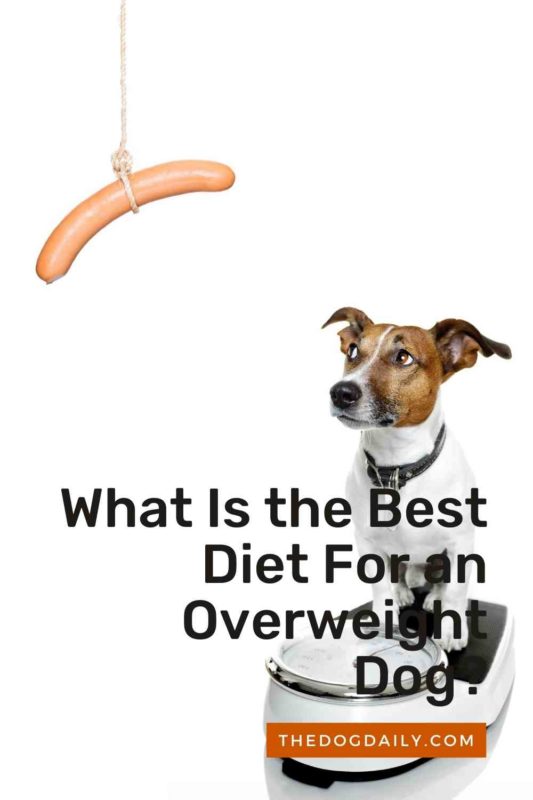How Do I Know If My Dog Is a Healthy Weight?
According to the Association for Pet Obesity Prevention, an estimated 45 percent of all U.S. dogs are overweight or obese. Luckily, food choices based on sound science can help treat overweight or underweight dogs. So, is my dog a healthy weight?
For many dog owners, determining what’s over or under a healthy weight isn’t so obvious. The most reliable way to find out is to ask your veterinarian, says Dr. Katy Nelson, a Virginia-based vet who has consulted on dog food nutrition matters. Your vet will use one of two scoring systems, with a sliding scale that runs from emaciated to morbidly obese.
An excellent at-home way to measure is to look at your dog’s ribs, says Rebecca Rose, a veterinary technician.
She has routinely advised pet owners about weight issues over her 23-year career. “If ribs can be seen, your dog is too thin,” she says.
“If the ribs can be felt, that is optimum. If the ribs are not felt, then your dog is overweight.”
What Happens If a Dog Is Overweight?
Overweight dogs live shorter lives, according to many studies, with a reduction in life span by two or more years.
Dr. Gail K. Smith, professor of orthopedic surgery at the University of Pennsylvania School of Veterinary Medicine, worked on a 14-year study of a canine diet. Smith and his colleagues found that “lean body conformation forestalls some chronic illnesses (in dogs), most notably osteoarthritis. That diet can either mitigate or exacerbate the expression of genetic diseases.” Therefore, dog owners need to keep their dogs lean, with palpable ribs and a distinct waistline.
Selecting an Appropriate Weight Control Dog Food
You should first “determine the number of calories your pet is currently consuming, including main meals, snacks, treats, and toppers,” says Dr. Amy Dicke, an Ohio-based veterinarian. Establish a goal weight with your veterinarian, and then move on to selecting foods.
The foods should offer complete nutrition and contain unique ingredients for weight loss, such as L-carnitine, an element that helps burn fat while keeping your dog energized and feeling full.
In case you ever have a question about the food, quality manufacturers provide a toll-free number on the package. Feel free to call up and discuss your concerns with their pet specialists.
Overweight Versus Obese Dogs
Beyond these basics, you can choose between “off the shelf” weight control dog foods and unique veterinary formulas available through many veterinarians. Also called “therapeutic diets,” these veterinary formula diets are generally designed for obese pets. Obese dogs and cats are 20 percent over their ideal weight. Therapeutic diets are often the most restricted in fat and calorie content.
Once you know your dog’s goal, many specialized foods can help. Here’s a quick rundown for each situation:
What Should I Feed My Underweight Dog?
Foods created specifically for underweight dogs, sometimes called “performance” foods, usually contain higher protein and fat than usual. These higher protein and fat levels can help build muscle mass. They aren’t merely the doggie equivalent of Big Macs, says Nelson. They’re just much more calorically dense than other foods, allowing dogs to eat a “normal” amount but supplying it with more calories per bite.
Nelson believes it’s a better option than giving more significant portions of “regular” food. “If a pet becomes accustomed to eating a large amount per day, it may be more difficult to transition it [back] when it’s achieved an ideal weight.”
How Can I Control My Dogs Weight?
Anyone who has dieted knows that, after losing weight, keeping it off can be challenging. That’s where “weight control” foods come in (sometimes they’re also called “weight maintenance” or “weight management”). They’re used to maintain the ideal weight once it’s been achieved.
“Don’t count on them to reduce your pet’s weight,” warns Nelson. “But they’re wonderful foods if your pet is where it needs to be.” She says these foods can also be used for obesity prevention — for a dog that has the potential to become overweight, such as hypothyroid or “couch potato” dogs.
What Is the Best Diet For an Overweight Dog?
Since 25 to 40 percent of dogs are considered overweight or obese, according to numerous university reports, there’s a good chance you’re living with a rotund Rover. If so, you’ve probably mulled over dog foods labeled with terms like “low calorie,” “lite,” and “weight control.” New research, however, has determined that such diets vary widely beyond the packaging and labeling differences.
There is a wide variety of options for dogs that need to lose weight. Some of these foods are very high in fiber since fiber makes dogs, like people, feel fuller with smaller amounts of food. But Nelson says drawbacks include the increased “output” that results from a fiber-rich diet and low coat quality. Instead, she prefers high-quality dog foods with moderate amounts of carbohydrates and protein.
“Look for products that include L-carnitine, an amino acid that helps ‘escort’ fat into cells to be burned efficiently,” says Nelson. “Also look for vitamin A — it helps fool the brain into thinking that it’s full — and chromium tripicolinate, another fat-burning additive.”
Tufts University Pet Food Study
Scientists from the Cummings School of Veterinary Medicine at Tufts University recently investigated nearly 100 commercially available pet food diets with weight management claims. “There is so much information — and misinformation — about pet foods. Understandably, people are confused about what to feed their dogs and cats,” says Dr. Lisa Freeman, a nutrition professor at Cummings who holds a doctorate in nutrition and veterinary medicine.
Under federal guidelines, pet foods labeled with terms like “light” or “low calorie” must provide caloric content on their labels. The foods must also adhere to a maximum kilocalorie per kilogram restriction. But Freeman and her team found that more than half of the evaluated foods exceed this maximum. The researchers also discovered that if owners follow the feeding recommendations for many foods, their pets gain weight.
But these foods alone won’t do the trick. “Portion control is the key in utilizing these scientifically engineered foods,” says Nelson. “You can have the best weight loss food on the market in your pet’s bowl, but if you’re dishing out too much of it, giving too many treats or not incorporating physical activity, your diet plan will fail.”
It’s also important to know the proper definition of a “cup” of food. Rose says she’s experienced many occasions where a dog owner’s idea of a cup was way off from the official eight ounces. “Conversations around ‘cup’ varied — is a coffee can is a cup? Or a 24-ounce soda cup? These are not exact 8-ounce servings,” she says.
While it’s essential to select the right weight loss diet, your companionship cannot be packaged or replaced. As Dicke points out, your dog’s “activity level, the home environment, and (your) vigilance” are essential to helping your dog lose the excess pounds and keep them off for good.
5 Step Dog Weight Management Plan
As you work with your dog on its new weight management plan, Dicke advises that you do the following:
- Step 1: Approach weight loss in a holistic manner. Often, this means starting with a lifestyle change.
- Step 2: Accurately measure the food, and if you are giving any treats or biscuits, consider the calories added to your pet’s daily intake.
- Step 3: If possible, feed the daily food allotment in multiple small meals throughout the day.
- Step 4: Increase daily exercise.
- Step 5: Any human interaction or attention tends to increase activity. If you show interest in your dog and what it’s doing, your dog will be more energetic and engaged.
Lastly, you might wonder how all these foods taste. Are they as unappealing to dogs as many “diet” foods are to people? “You may have to try a few foods to find the one that your pet will like,” says Nelson. “But in general, pets that are obese often do not have the most discerning tastes.”
Article written by Author: Brad Kloza, and The Dog Daily Expert

